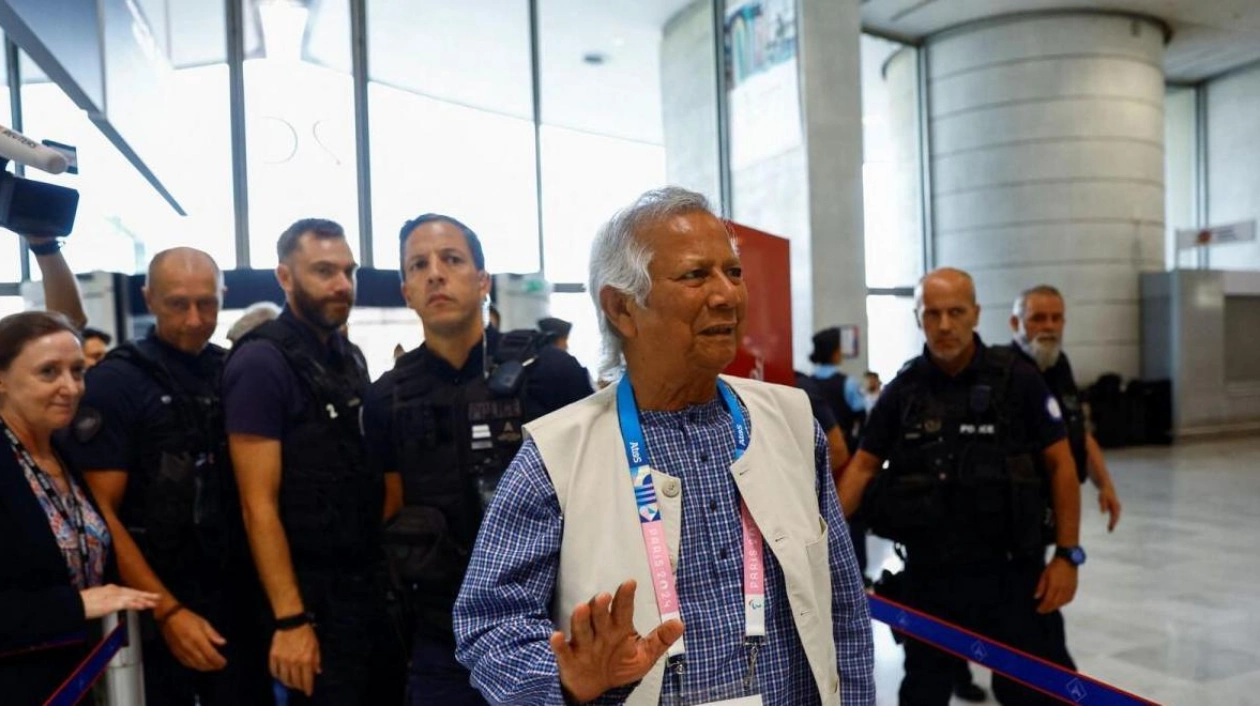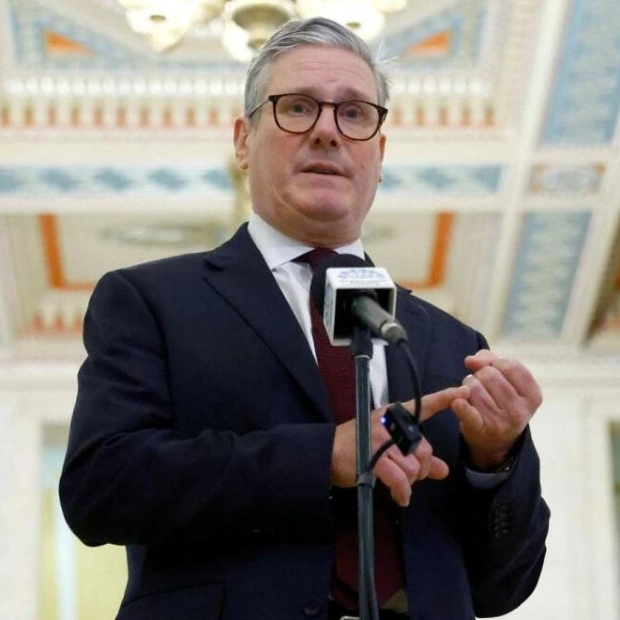Bangladesh's Muhammad Yunus, poised to head a caretaker government following mass protests that ousted the prime minister, urged his compatriots on Wednesday to prepare for national reconstruction ahead of his highly anticipated return. The Nobel laureate and microfinance pioneer is set to lead the interim government after the autocratic prime minister, Sheikh Hasina, fled to India, according to the presidency.
"Stay calm and prepare to build the country," Yunus stated on Wednesday, a day before his expected return from France, calling for peace after weeks of violence that claimed at least 455 lives. "If we resort to violence, everything will be ruined," he cautioned. The swift appointment followed calls from student leaders for the 84-year-old Yunus, known for his role in lifting millions out of poverty in South Asia, to take the helm. The decision was reached in a meeting with President Mohammed Shahabuddin, military chiefs, and student leaders, as per a statement from the president's office.
Army chief General Waker-Uz-Zaman expressed his support for Yunus, hoping to swear in the interim government the next day. "I am confident he will guide us through a democratic process that will be beneficial," Waker stated in a televised address. Yunus will hold the title of chief adviser, revealed Nahid Islam, a leader of Students Against Discrimination who attended the meeting. Yunus, previously sentenced to six months in jail for a politically motivated labor charge, was acquitted by a Dhaka court on Wednesday.
"I am eager to return home, assess the situation, and determine how we can organize ourselves to overcome our current challenges," Yunus told reporters at Charles de Gaulle airport in Paris before his flight. Details about the planned government, including the military's role, are sparse, but Yunus aims to hold elections "within a few" months. "Let us maximize our newfound victory," he urged. "Let us not squander it due to our errors."
Hasina, 76, who had been in power since 2009, resigned on Monday as hundreds of thousands took to the streets of Dhaka demanding her resignation. The protests, initially against government job quotas, evolved into an anti-Hasina movement. Accused of rigging January's elections and committing widespread human rights abuses, Hasina deployed security forces to suppress the protests, resulting in hundreds of deaths. The military eventually turned against her, forcing her to flee to India by helicopter.
The military has since met various demands from student leaders, including Yunus's appointment. The president dissolved parliament on Tuesday, fulfilling another demand from the student leaders and the former opposition Bangladesh National Party (BNP). The police chief, blamed for leading Hasina's crackdown, was dismissed. Former prime minister and BNP chairperson Khaleda Zia, 78, was released from house arrest, along with other political prisoners. The military has demoted generals close to Hasina and dismissed a commander of the Rapid Action Battalion.
Since Tuesday, the capital's streets have been largely peaceful, though government offices remain mostly closed. Bangladeshis celebrated Hasina's departure, with jubilant crowds looting her official residence. "We have been liberated from a dictatorship," said Sazid Ahnaf, 21, likening the events to the 1971 independence war from Pakistan. Police reported revenge attacks on Hasina's allies and officers, as well as the release of over 500 inmates from a prison. Monday marked the deadliest day since protests began, with at least 455 deaths since early July, according to an AFP tally. Protesters stormed parliament and set TV stations ablaze, while others vandalized statues of Sheikh Mujibur Rahman, Bangladesh's independence hero. Some businesses and homes owned by Hindus, viewed by some as pro-Hasina, were also targeted. Bangladeshi rights groups and US and EU diplomats have expressed concern over attacks on religious, ethnic, and other minority groups. Neighboring India and China, both key allies of Bangladesh, have called for calm.






